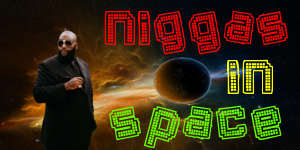Originally posted by Sudo
This is the most prosthetically stimulating post I've seen in a while. This begs the question whether someone is "free" in an anarchist society where you would die for saying what is perceived to be wrong by others (as you still certainly can now) and whether freedom of speech is freedom of platform (which twitter is as well as journalism and the like). Freedom is so subjective and contextual it's hard to define. Freedom of speech is supposed to be equal for all citizens but certainly isn't and definitely not if we are talking about a platform. The inalienable right to free speech is basically the right to talk about yourself but not what you feel about anything of consequence.
Kind of a useless statement, but someone is only as free in that anarchist society as the collective lets them be. Same as any other society. An anarchist society "free" from "arbitrary hierarchical power structures" is still a society, to which the hierarchal power structure of "the society over the individual" is inherently going to pose an ever-looming threat. Short of a completely atomized population with no ties to each other - something like the heat death of humanity in a gaseous state - you're only ever as free as "the rest of us" let you be. And I would argue that in that "heat death of humanity" situation, the platonic ideal of freedom has been achieved and it's more or less meaningless insofar as its applicability to societies goes. In that situation only nature stops anyone from doing anything, and "getting crippled by an avalanche and losing your ability to speak" is not meaningfully comparable to the loss of freedom of speech as we know it.
This kind of helps us define what freedom is - it is the closest approximation in a society to that maximally 'free' Platonic ideal of freedom in which our capacities are only diminished or impeded by nature: an ability which can be policed or governed by the collective, but isn't. A fairly objective definition. What's subjective is the value we place on certain abilities and how close to that objective state we believe they are/should be.
PS: The inalienable right to free speech doesn't exist because speech isn't inalienable. Your ability to do it can be taken away. It can be governed and policed. We call it an inalienable right because collectively we've decided it probably shouldn't be taken away, but it's not like it
can't be, and in truth it's proven time and again (everywhere that terminology is used) to be
quite alienable. The "inalienable right to freedom of thought without any outward expression whatsoever" is pretty much the only one we have, and technology is working on eroding even that.

